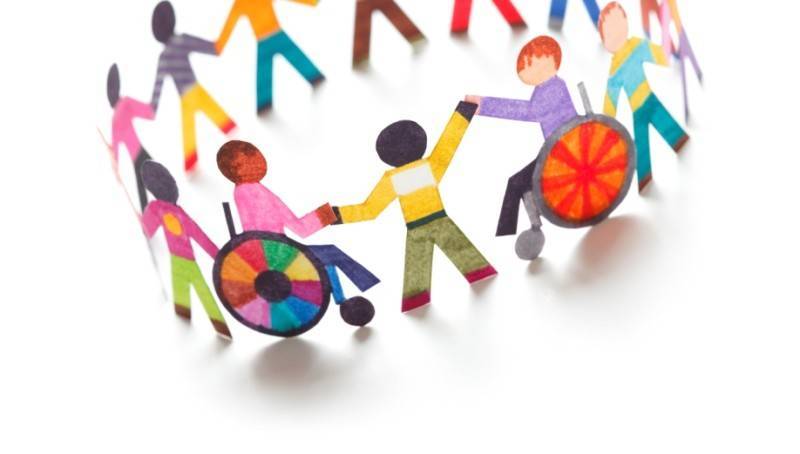საერთო ცხელი ხაზი +995 577 07 05 63


Organizations working on the rights of persons with disabilities, organizations of parents of persons with disabilities and independent activists are responding to the Draft Law of Georgia “on the Rights of Persons with Disabilities”. The Draft Law should have been designed to implement the UN Convention on the Rights of Persons with Disabilities (CRPD) and create relevant legislative and institutional mechanisms. Nevertheless, aside from a few positive changes, the Draft Law does not change the human rights situation of persons with disabilities, and in some cases, contradicts the Convention and worsens the standards for the protection of the rights of persons with disabilities.
The law-drafting process by the Ministry of Justice was challenging. The Ministry has failed to ensure active and effective involvement of persons with disabilities and disability organizations in the process. On the one hand, relevant organizations and activists had a one-time opportunity to participate in the meeting designed to discuss the Draft Law and submit verbal and written comments. On the other hand, only a small part of the recommendations was reflected in the final version of the Draft Law, and the document was not substantially changed. We believe that when the central government was working on a package of legislation that would address all aspects of the lives of people with disabilities, it was not enough to ensure solely the involvement of service provider organizations. The process should have been inclusive and should have been part of a wide-range public discussion throughout Georgia, taking into account the views and recommendations of people with disabilities living in the regions.
The Draft Law includes some positive changes, such as the requirement of protection of physical and mental integrity of persons with disabilities, the provision of support to persons with disabilities in the framework of legal proceedings, the concepts of reasonable accommodation and universal design, as well as the definition of a special plaintiff. However, these changes do not significantly improve the human rights situation of persons with disabilities and their quality of independent living due to their deficiencies and/or introducing lower standards than the CRPD. Besides, the transitional provisions of the Draft Law include the obligation to set important standards, however, the timing of their adoption and enforcement is prolonged, which postpones implementation of the state’s obligations under the CRPD and making it impossible to improve the rights of persons with disabilities.
An important challenge is the declarative and abstract nature of the Draft Law, which does not set legal standards and, if enacted, does not guarantee the real protection of the rights of persons with disabilities. The Draft Law does not foresee the concrete and effective mechanisms for the implementation of the CPRD. In particular, instead of imposing an obligation to ensure the rights of persons with disabilities, it recognizes the protection of the rights of persons with disabilities as a good will of the state and introduces a lower standard - "promotion of the rights of this group."
While being mostly declaratory, the Draft Law leaves out a number of rights and issues faced by persons with disabilities. While hundreds of persons with disabilities continue to live in large-size boarding houses and psychiatric institutions, the document excludes the state's obligations concerning mental health sphere and deinstitutionalization. The Draft Law fails to include rights, such as legal capacity, freedom of movement, freedom of thought and expression. The document does not single out the protection issues of women with disabilities as a separate article.
Along with the rights-setting standards, the Draft Law fails to create preconditions for the provision of relevant services for persons with disabilities. It solely introduces a program of a personal assistant as a separate service, while it cannot be qualified as only important service for people with disabilities. In addition to service provision, we consider the creation of the appropriate legal guarantees for ensuring unhindered work of the institutional framework (bodies for implementation, coordination and monitoring of the Convention), as well as processing of the comprehensive statistics, as important tools for carrying out effective state policy.
With regard to certain rights and concepts, the Draft Law contradicts the CRPD and worsens the human rights situation of persons with disabilities. In particular, despite the fact that the Draft Law abolishes the Law of Georgia “on Social Protection of Persons with Disabilities” new mechanisms that would be in line with the Convention are not introduced. Therefore, persons with disabilities remain without significant social protection guarantees. Introduction of a social model for the assessment of persons with disabilities is also problematic. Namely, the Draft Law only discusses the assessment approach (biopsychosocial assessment), which is again linked with the medical approach.
Based on all the above, the signatory organizations and individual activists address the Parliament of Georgia with the following recommendations:
Signatory organizations and individual activists
The website accessibility instruction